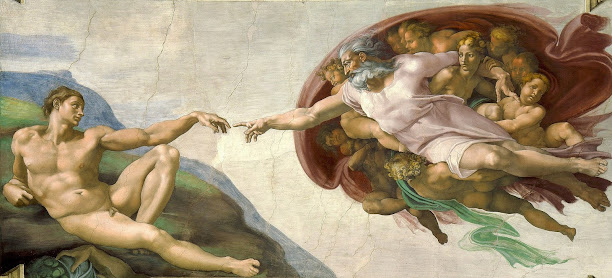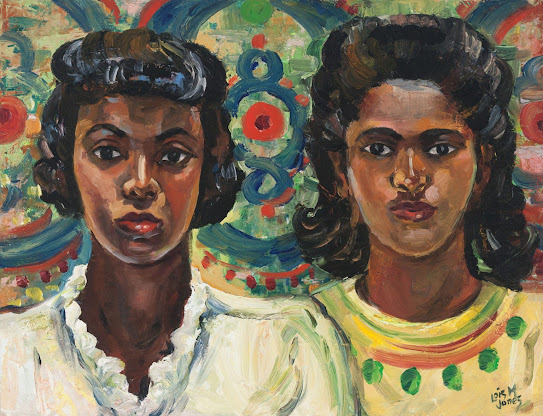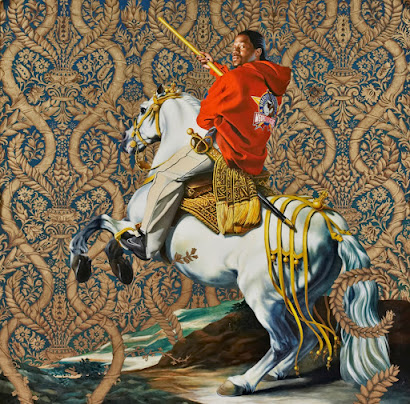Comparison of Richard (The Hours) and Septimus (Mrs. Dalloway)
In Clarissa’s storyline in The Hours,
several characters from Mrs. Dalloway are combined into Richard Dalloway’s
character. Richard seems to be an amalgamation of Richard, of course, Septimus,
and Peter (or at least Peter’s role as the romanticized ex). Richard’s
character in The Hours clearly draws inspiration from Septimus, as Richard
is a poetic writer who eventually meets the same fate Septimus does in Mrs.
Dalloway—suicide. The nature of Richard’s suicide in The Hours in
some ways stays true to the novel, however in other ways, the original points that
Virginia Woolf makes in Septimus’s story are lost.
One similarity between the stories of both
characters is the fact that they are essentially kept alive by the women in
their lives for the durations of their stories before their suicides. In The
Hours, Richard is taken care of by Clarissa, and even says that he stays
alive for as long as he does “just to satisfy” Clarissa. In Mrs. Dalloway,
Septimus talks about committing suicide a while before he actually goes
through with it, but Lucrezia is there to keep him from hurting himself and to seek
treatment for him. However, in the film, it is made clear that Richard is alive
for Clarissa, and I do not think that this point can necessarily be
applied to Septimus’s story. Though Septimus is kept alive by Lucrezia, he does
not continue living for Lucrezia’s sake, and at one point in the novel even
expresses a wish not to be married to her anymore. Thus, Richard and Septimus
are prevented from committing suicide (before their suicides) in different ways
and have different feelings about living.
The other obvious similarity between
Septimus’s and Richard’s suicides is the fact that they both have a debilitating
illness leading up to their deaths. For Septimus, this illness is mental, as he
has schizophrenia caused by severe PTSD (or shellshock). Richard’s illness is
one that takes a physical toll on him: AIDS. However, having AIDS is a traumatic
experience that clearly takes a mental toll on Richard in addition to physical,
considering he committed suicide rather than letting himself die due to AIDS. Thus,
both of these characters, despite having different illnesses, ultimately
committed suicide due to mental stress.
Though having AIDS is mentally trying for Richard and ultimately leads him to suicide, the fact that he for the most part has a non-mental ailment causes the connection between Virginia Woolf and his character to become lost. In Mrs. Dalloway, Septimus is a character that strongly reflects Woolf’s own experiences. He is a tool with which Woolf speaks openly about mental illness and the faults within the psychiatric community of her time, and these messages don’t appear in Richard’s story. However, none of this is to say that Richard’s story in The Hours is any less important than what Woolf tries to convey through Septimus. Stories about the AIDS crisis are incredibly important. I even think that Woolf’s perspective could shine through in such a story—especially her negative view on the medical community, since unwillingness from the medical community to help find a cure for AIDS was a huge issue during that time—but the way in which Richard’s story is framed doesn’t allow for Woolf’s voice to appear (except for the actual lines from her suicide note I suppose).
If
you saw The Hours, do you think the movie did a good job accurately translating
Mrs. Dalloway to film?




I think the hours did an impeccable job of putting its own spin on the story while retaining the mood and feeling of the original. Richard is obviously the most stark transition, however it is successfully pulled off.
ReplyDeleteI don't think The Hours accurately translated Mrs. Dalloway into film, but I also don't think that was particularly the point of the movie. At first I felt very off-balance because I was expecting something similar to Mrs. Dalloway, or similar themes and messages, but as you said - It doesn't really have those. I got more into the rhythm of the movie as it went on, and it became more apparent that the movie wasn't really trying to be Mrs. Dalloway, but more it's own thing that originated from the story and ideas present in Mrs. Dalloway. As Lucas said, I think it pulled it off, but I also think it put a bit more than just a spin on the story, what with the two completely new storylines.
ReplyDelete